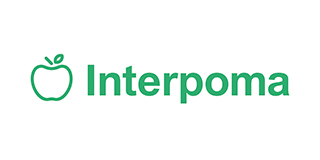

Interpoma
Services
QUAFETY scientists met Portuguese Food Industry in Porto
"Non-Destructive Methods for Evaluation of Quality and Safety of Ready to Eat Fresh Products" is the title of the workshop held last Friday November, 14, at the Escola Superior de Biotecnologia, of the Portuguese Catholic University in Porto (ESB-UCP). The event, organized in the framework of the dissemination activities of Project QUAFETY (www.quafety.eu), was a chance for scientists to meet with representatives of PortugalFoods, the cluster of Competitiveness and
05 August, 2020
"Non-Destructive Methods for Evaluation of Quality and Safety of Ready to Eat Fresh Products" is the title of the workshop held last Friday November, 14, at the Escola Superior de Biotecnologia, of the Portuguese Catholic University in Porto (ESB-UCP). The event, organized in the framework of the dissemination activities of Project QUAFETY, was a chance for scientists to meet with representatives of PortugalFoods, the cluster of Competitiveness and Technology of Portuguese Agro-Food sector, in order to demonstrate the innovation developed within the Project aimed to assess quality and safety of ready to eat fresh fruits and vegetables, to present non-destructive diagnostic methods, and to complement, expand, or even substitute the destructive ones. Dissemination/demonstration activities were programmed in order to communicate as widely as possible the results and possibilities of Project QUAFETY within target institutions and companies potentially interested in the outcomes.? The Workshop was opened by Dr. Manuela Pintado from ESB-UCP who welcomed participants, framing the relevance of the demonstrations for the actual success of the Project, and explaining their role in the project. Dr. Isabel Braga da Cruz, from PortugalFoods integrated the welcome session highlighting the relevance for the industry and how they can be drivers of income and competiveness, recognizing the value of these demonstrations for the food sector and the importance of their application to improve the quality and safety in ready to eat food industry easily transferable to other industry. She also emphasized the relevance of cooperation of research centers and academy with food industry. Finally Dr. Antonio Ferrante, from University of Milan (Italy) delivered a general description of Project QUAFETY and of its progress. The session continued with presentations of developed methodologies also with the aid of educational videos. Dr. Giacomo Cocetta of University of Milan and Dr. Pasquale Russo of University of Foggia (Italy) presented on ?Innovative diagnostic methods and procedures for the detection of bacteria in minimally processed vegetables?. Dr. Spyridon Paramithiotis of Agricultural University of Athens (Greece), covered the topic on ?Classical approach to assess the microbiological quality of minimally processed fresh produce?. Dr. Hilary Rogers and Dr. Natasha Spadafora from the University of Cardiff, with the collaboration of Dr. Matt Bates from Markes International (UK), presented on ?Evaluation of volatile organic compounds collection for non-destructive analysis of post-harvest quality?. The event was concluded in the pilot plant of ESB-UCP with the practical demonstration of these techniques and of their applications: potential advantages and limitations were discussed among participants and plans were made for further cooperation. For more informationDr. Manuela Pintado, ESB-UCP (mpintado@porto.ucp.pt) or visit www.quafety.eu The pictures show the QUAFETY dessimination/demonstration session at Escola Superior de Biotecnologia, Portuguese Catholic University ?












